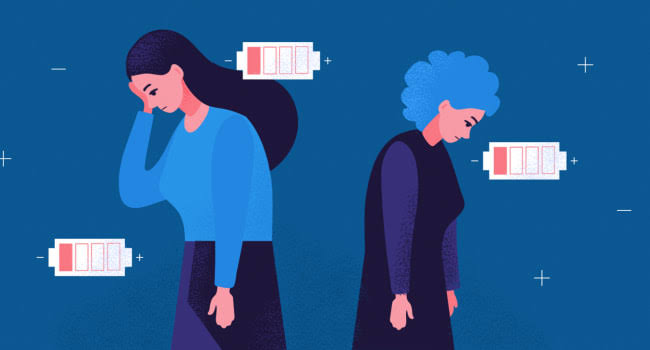
I was around seven or eight when I was told that a loved one suffered from bipolar disorder. For a seven-year-old, this was just news in passing, something that didn’t stick in my mind for too long. Fast forward a few years I would have experienced some of the episodes first-hand, which I was unable to comprehend at those points of time and the result of which was me locking those memories away in a deep, dark corner of my mind. I just knew that what I had witnessed was something that I did not want to see again.
So, to “prevent” any future episodes I did what any naïve, well-meaning person would do- I started obsessing over the disease and any signs my loved one exhibited. Every facial expression, every inconsequential tap of the fingers was scrutinised and whenever I felt something deviated slightly from “normal” behaviour I would rush to my parents; I could never address these issues with the person themselves. I just assumed it would be too awkward to talk about making me feel like I was perpetually walking on egg shells-maybe if I spoke too much about it, I would jinx it and cause another episode. I held onto this obsessive habit of mine for quite some time, refusing to confide my anxieties even to my parents.
During the manic and depressive episodes, I would never confide in anyone about what was going on at home and I could never bring myself to sit down and reflect over what I had seen. This resulted in constant frustration and conflicted feelings towards my loved one, on one hand, I wanted to help them get better and be there for them, and on the other, I felt guilty for thinking poorly about them and wanting to take a step back because I felt drained emotionally and physically.
What I didn’t know was that I was experiencing caregiver fatigue (a term I had stumbled on when I was nose-deep in a 4 a.m. research session).
What exactly was caregiver fatigue? Caregiver fatigue (or) burnout simply put is the physical, emotional, and mental exhaustion that a caregiver experiences which results in a change in attitude towards their job and the care recipient. It leaves one feeling drained and resentful towards the care recipient begins to develop. It can often isolate individuals, as it did so in my case, I felt alienated from my family and friends because I believed they couldn’t understand what I was going through.
Despite checking all the boxes, it sounded too grave to apply to me. I didn’t believe what I was experiencing could be that, it just seemed so far-fetched and I began doubting what I was feeling in the first place-was I really that tired? Did I actually give my everything in taking care of this person? Was I just being selfish and trying to shun the responsibility? Further, the lack of control that I had over the situation made me suppress my thoughts. I was just stuck in this endless cycle of concern and guilt; the only coping mechanism was breaking down and crying myself to sleep.
As time went by, these feelings of despair and helplessness kept on getting stacked up one upon the other like a tower of cards swaying in even the gentlest breeze. Eventually, the tower collapsed and I reached my breaking point; I knew I had to reach out for help.
So ugly-crying my way through a session with a therapist, I explained how I felt this poisonous combination of resentment and guilt about the situation I was in as if I had expended all the love and care I had with nothing left to give to anyone (myself included) and felt like just a hollow shell of a person. I told her about how I felt guilty for even thinking about myself, that it was selfish reaching out for help when my loved one was suffering.
My therapist told me how taking care of someone who suffers from bipolar disorder was a life long ordeal, it wouldn’t be easy but I needn’t make it unbearable either and that reaching out for help wasn’t wrong.
I began to slowly accept the fact that I was indeed suffering from caregiver fatigue, which had stemmed from me not looking after my needs and focusing solely on the best care for my loved one. I had to learn how to acknowledge what I felt and open up a better communication system with my parents. I reached out and began to have those uncomfortable conversations which I had long avoided. Speaking to my loved one about how I felt and that the transient feelings of resentment which I held were in no way a reflection of how I truly viewed them.
Years of silent agony made me finally understand that the only way I could help someone else was by helping myself as well. This isn’t to say that coming to this realisation was an easy or a quick process either- it involved many moments of doubt and feelings of selfishness (which still occasionally crop up) but I now recognise that for me to be a pillar of support for my loved ones, I needed to learn how to prioritise myself as well.
The only way to be supportive is to learn to be selfish.
Written by Nitya Sai T for MTTN
Edited by Mihika Antonia Dean for MTTN
Featured image by www.peoplematters.in
Artwork by www.thepsychologist.org

Leave a Reply
You must be logged in to post a comment.